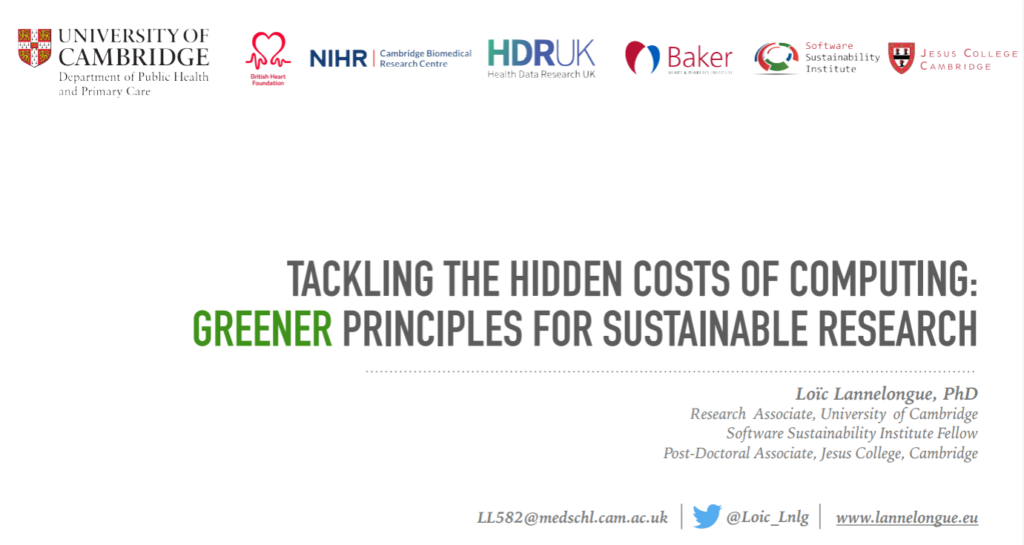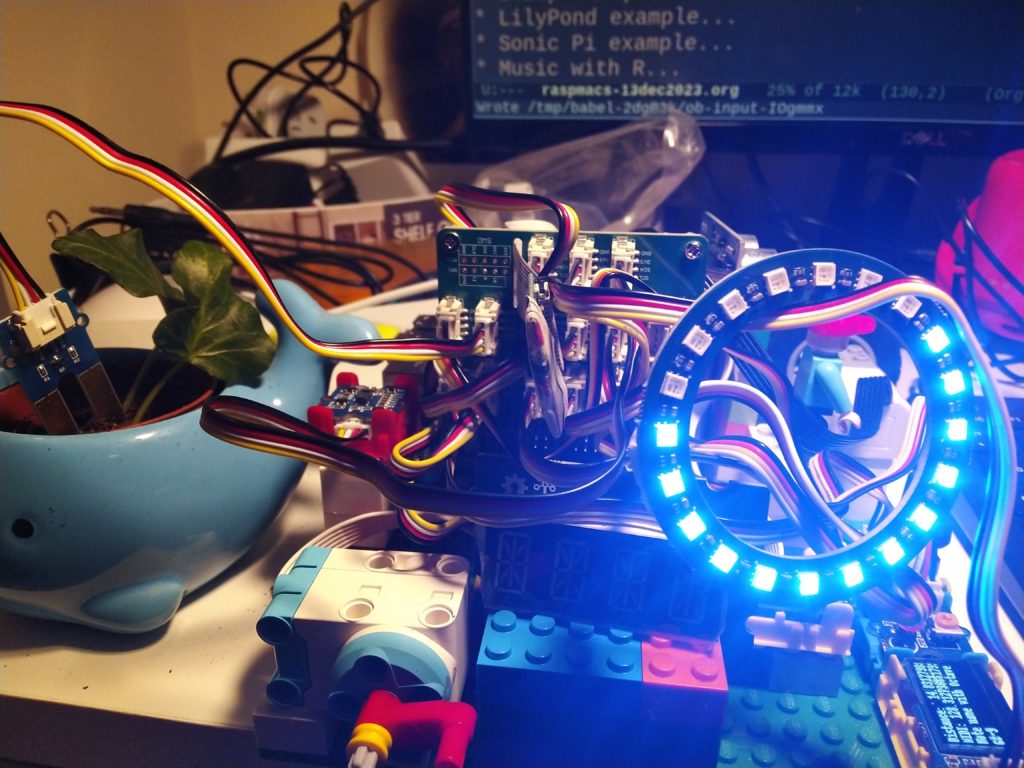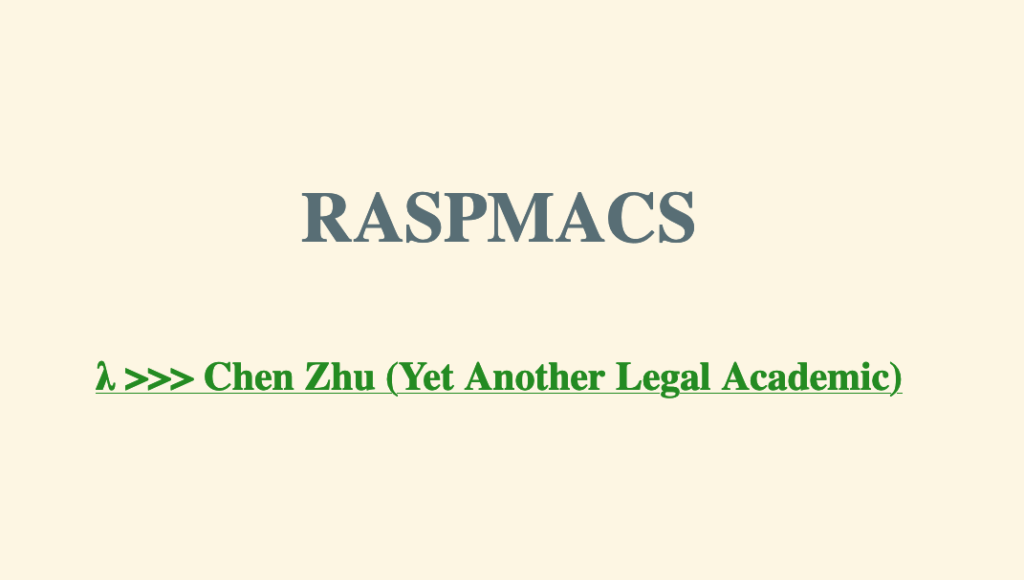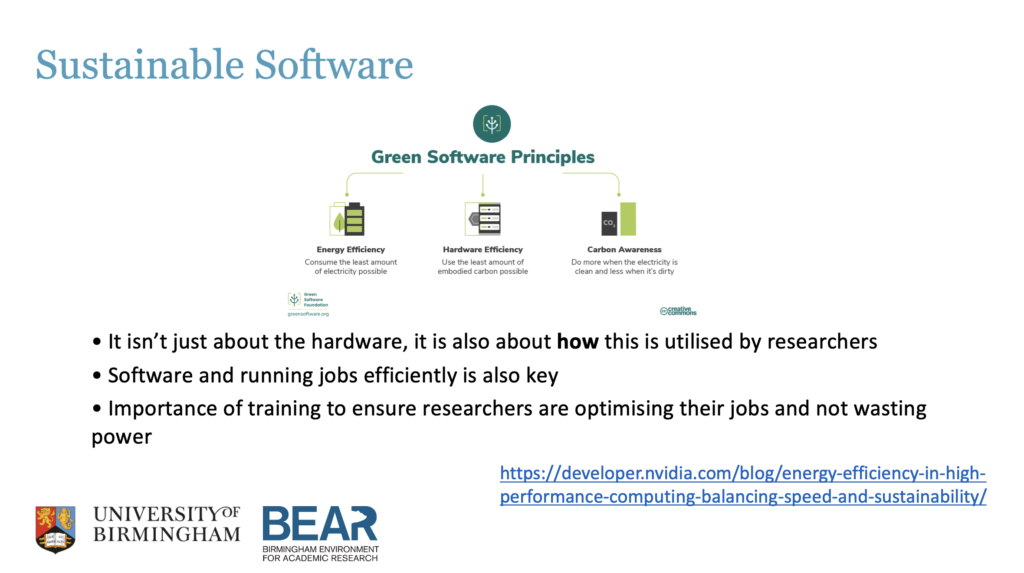In our 9th Digital Research Conversation, held on the 13th December 2023, researchers and Advanced Research Computing staff gave us an insight into how and why sustainable research computing should be on everybody’s agenda. Kirsty McCready, our Research Engagement and Data Group Intern, led the event and provides a summary below.

There is no question that powerful computing has environmental costs; materials are mined or made, equipment is manufactured, and materials, kit and product must be packaged and shipped; often around the globe. And this is all before we consider the huge amounts of energy required to run and maintain servers. But have you ever considered your impact as a HPC user? Ever considered how much energy each of your compute jobs consume? Or written code that “does the job” but could be far more succinct?

Our first speaker to introduce the topic was Dr. Loïc Lannelongue, Research Associate at Jesus College, University of Cambridge. Loïc made a strong case for his set of GREENER principles for sustainable computational science, recently published in Nature. He argued that it is the responsibility of all stakeholders – from researchers to institutions – to monitor and reduce the environmental impacts of computational research. One way we can do this is by estimating and reporting the carbon footprint of computation. Loïc and his team have developed a tool that does just that – Green Algorithms 4 HPC! Their next step is to develop this tool into an interactive SLURM-based dashboard. Read more in his slides below:



Following a break for pizza and mince pies, Dr. Chen Zhu (Birmingham Law School) gave us an insight into the world of sustainable legal research using GNU/Emacs and a Raspberry Pi. Presenting from his Pi (built with some spare Lego bricks!), Chen first showed us his Pi moisture sensor, programmed to tell him when his plants need watering! Chen then launched his presentation directly from the Pi and gave us an interactive look into plain-text computing environments such as Elisp and LilyPond. Chen ended with a demonstration of a piece of code he has written in R that plays short musical pieces to enable comparison between them. He left it to us to decide whether this particular piece was in breach of copyright! See Chen’s slides below:

Dr. Zoya Pourmirza (Academic Director of Smart Systems and Senior Research Fellow in Computer Science) then steered us in a different direction: the digitalisation of energy system infrastructure. Digitalisation involves the integration of energy system components to support decarbonisation and decentralisation, and is a core component of the UK’s net zero challenge. Zoya discussed the technical challenges facing digitalisation, such as data availability, governance and communication, and cyber security. Zoya argued that to overcome these challenges, new standards are required. However, she warned that the human factor could be the greatest challenge in a future, digital environment.

Next, we gained insight into sustainable computing from the perspective of a Research Infrastructure Developer. Dr. Jon Wakelin, who leads the Architecture Infrastructure and Systems (AIS) group at BEAR talked us through the steps BEAR have taken to make our data centre as efficient as possible, e.g. with direct liquid cooling to servers as opposed to using air conditioning to cool the whole room. However, when it comes to measuring efficiency, Jon had questions. He questioned whether Power Usage Effectiveness (PUE) is still a useful metric and argued for a shift in focus towards decarbonisation of the energy source of a data centre. This led to some interesting discussion with Loïc about the metrics that he uses in his GREEN algorithms.
Finally, our very own Debbie Carter (BEAR Research Engagement and Data Group) brought the session to a close – presenting the training and services we offer at BEAR to help you to compute more sustainably.

Huge thanks to Kirsty for all her efforts in putting on this topical event, and to all the speakers who provided thought-provoking talks around sustainable computing. If you have any ideas for future Digital Research Conversations then do get in touch with us via email at bearinfo@contacts.bham.ac.uk
